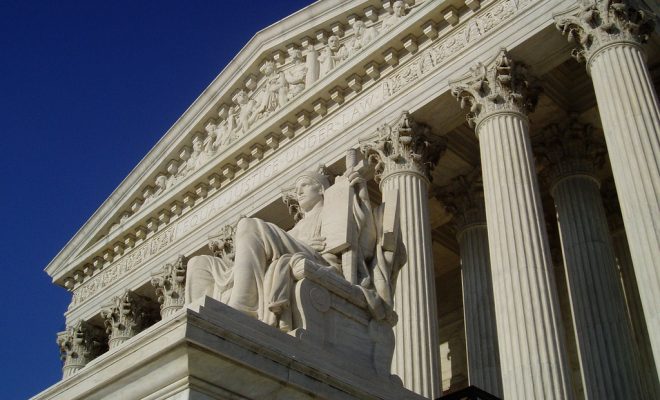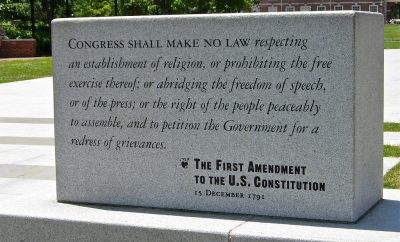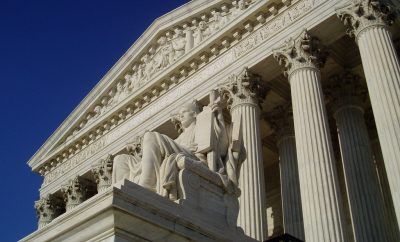 Image Courtesy of Matt Wade; License: (CC BY-SA 2.0)
Image Courtesy of Matt Wade; License: (CC BY-SA 2.0)
Law
SCOTUS Declines Hearing for Gavin Grimm Case, Issues Ruling on Jury Secrecy
The Supreme Court on Monday issued a landmark ruling on jury secrecy, while declining to hear what would have been its first case on transgender rights. In Peña Rodriguez v. Colorado, the court ruled that if racial bias is found to influence a juror’s opinion, an inquiry into the jury deliberations–a secret practice–could be launched. The transgender rights case involved Gavin Grimm, a high school student and transgender man whose school did not allow him to use the boys’ bathroom. Here’s what you need to know about each case:
Peña Rodriguez v. Colorado
In 2010, a jury found Miguel Angel Peña Rodriguez guilty of sexually harassing two sisters in a racetrack bathroom. One of the jurors, a former police officer referred to as H.C., said he thought Peña Rodriguez was guilty “because he’s Mexican, and Mexican men take whatever they want,” according to sworn statements from his fellow jurors. H.C. said the defendant’s alibi witness was not credible because he was “an illegal,” the sworn statements said.
On Monday, in a five-to-three decision, the Supreme Court found that racial bias on the part of a juror–like H.C. in the Peña Rodriguez case–warrants an inquiry into jury deliberations. “Racial bias implicates unique historical, constitutional and institutional concerns,” Justice Anthony Kennedy wrote for the majority opinion. He added that for an inquiry to be justified, “there must be a showing that one or more jurors made statements exhibiting overt racial bias that cast serious doubt on the fairness and impartiality of the jury’s deliberations and resulting verdict.”
Justices Ruth Bader Ginsburg, Stephen Breyer, Sonia Sotomayor, and Elena Kagan agreed with Kennedy, while Justices Samuel Alito, John Roberts, and Clarence Thomas dissented. Writing for the dissenting opinion, Alito called the prevailing opinion “startling,” adding that “although the court tries to limit the degree of intrusion, it is doubtful that there are principled grounds for preventing the expansion of today’s holding.”
The Gavin Grimm Case
In 2015, a local school board in Virginia enacted a policy that students must use the bathroom that corresponds with the gender on their birth certificate. This was a blow to transgender students who, like Grimm, want to use the bathroom that corresponds to their gender identity. Grimm, represented by the ACLU, challenged the policy in court. Last year, a federal appeals court in Richmond, Virginia, ruled that the policy is unlawful, concurring with the Obama Administration that Title IX, which protects students from sexual discrimination, also protects transgender rights.
But on Monday, the Supreme Court vacated the appeals court’s ruling, sending it back for further consideration. The case would have been the first transgender rights case to appear in the highest court. The decision to throw away the case for the time being was likely influenced by the Trump Administration’s repeal of an Obama Administration directive requiring public schools to allow students to use whichever bathroom matches their gender identity.
“Thousands of transgender students across the country will have to wait even longer for a final decision from our nation’s highest court affirming their basic rights,” Sarah Warbelow, the legal director of the Human Rights Campaign, told the New York Times.








Comments